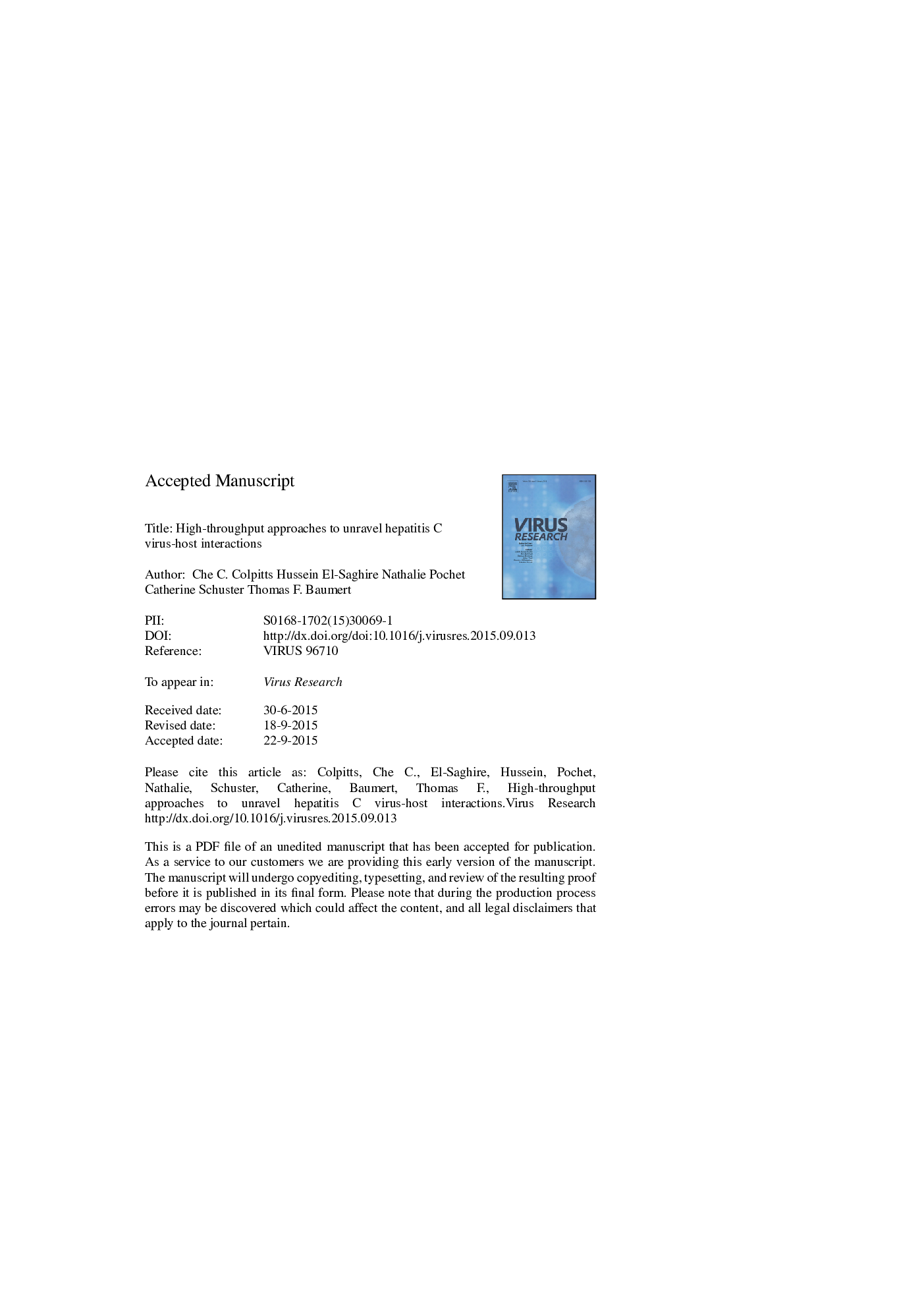| Article ID | Journal | Published Year | Pages | File Type |
|---|---|---|---|---|
| 6142107 | Virus Research | 2016 | 28 Pages |
Abstract
Hepatitis C virus (HCV) remains a major global health burden, with more than 130 million individuals chronically infected and at risk for the development of hepatocellular carcinoma (HCC). The recent clinical licensing of direct-acting antivirals enables viral cure. However, limited access to therapy and treatment failure in patient subgroups warrants a continuing effort to develop complementary antiviral strategies. Furthermore, once fibrosis is established, curing HCV infection does not eliminate the risk for HCC. High-throughput approaches and screens have enabled the investigation of virus-host interactions on a genome-wide scale. Gain- and loss-of-function screens have identified essential host-dependency factors in the HCV viral life cycle, such as host cell entry factors or regulatory factors for viral replication and assembly. Network analyses of systems-scale data sets provided a comprehensive view of the cellular state following HCV infection, thus improving our understanding of the virus-induced responses of the target cell. Interactome, metabolomics and gene expression studies identified dysregulated cellular processes potentially contributing to HCV pathogenesis and HCC. Drug screens using chemical libraries led to the discovery of novel antivirals. Here, we review the contribution of high-throughput approaches for the investigation of virus-host interactions, viral pathogenesis and drug discovery.
Related Topics
Life Sciences
Immunology and Microbiology
Virology
Authors
Che C. Colpitts, Hussein El-Saghire, Nathalie Pochet, Catherine Schuster, Thomas F. Baumert,
